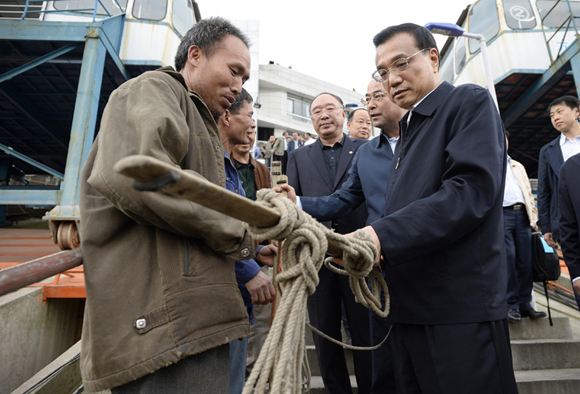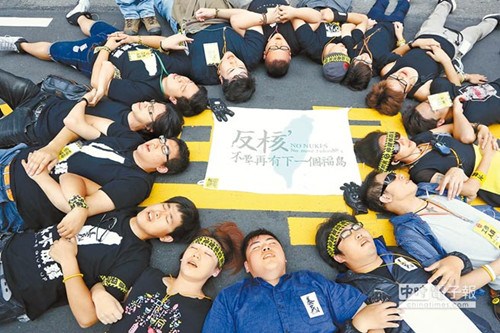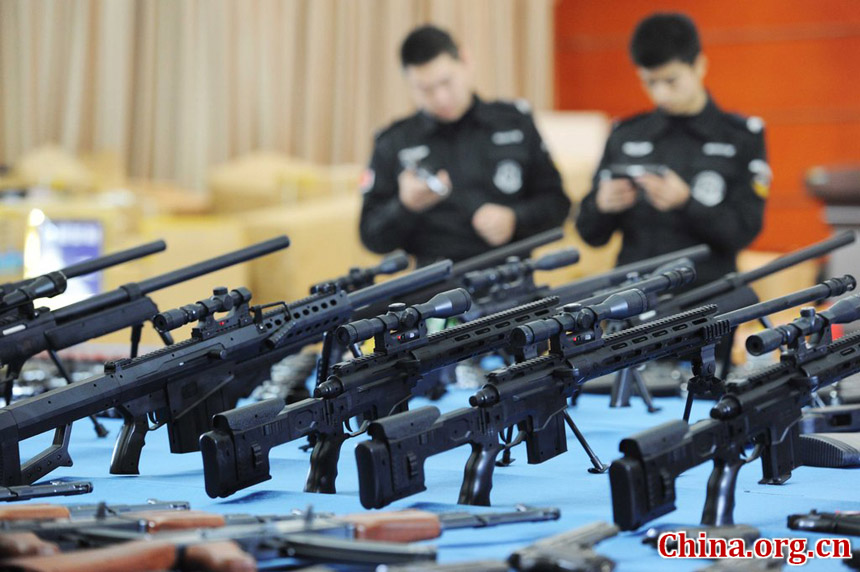Chinese President Xi Jinping has called for “nets spread from the earth to the sky” to defend against terrorist acts in Xinjiang, stressing long-term stability as the main goal for the region.
![Chinese President Xi Jinping, also general secretary of the Communist Party of China (CPC) Central Committee and chairman of the Central Military Commission, addresses the second central work conference on the development and stability of northwest China's Xinjiang Uygur Autonomous Region, in Beijing, May 28, 2014. [Photo/Xinhua] Chinese President Xi Jinping, also general secretary of the Communist Party of China (CPC) Central Committee and chairman of the Central Military Commission, addresses the second central work conference on the development and stability of northwest China's Xinjiang Uygur Autonomous Region, in Beijing, May 28, 2014. [Photo/Xinhua]](http://images.china.cn/attachement/jpg/site1007/20140530/7427ea210acc14f2190c01.jpg) |
|
Chinese President Xi Jinping, also general secretary of the Communist Party of China (CPC) Central Committee and chairman of the Central Military Commission, addresses the second central work conference on the development and stability of northwest China’s Xinjiang Uygur Autonomous Region, in Beijing, May 28, 2014. [Photo/Xinhua]
|
Xi made the remarks at the second central work conference on northwest China’s Xinjiang Uygur Autonomous Region, a two-day meeting which closed on Thursday.
While urging strengthened precautions and international anti-terrorism cooperation, Xi called for “walls made of copper and steel” and “nets spread from the earth to the sky” to capture terrorists.
The meeting was held in the wake of a series of bloody terrorist attacks in the region, including one in an open air market in Urumqi, the region’s capital, which left 39 people dead and 94 injured on May 20.
Calling for “meticulous” religious work, Xi stressed that there should be a focus on helping religion adapt to a socialist society and ensuring the role of religious figures and believers in boosting economic and social development.
“Focus on fostering a team of patriotic clergy and boosting the general quality of people in the religious circle so as to ensure that the leadership of religious organizations is firmly in the hands of people who love the country as well as religion,” he said.
According to Xi, the basic principle for easing religious tensions is to protect legal religious activities, deter illegal and extreme ones, guard against infiltration and crack down on crimes.
The president noted that people’s normal religious demands should be protected in accordance with laws and regulations and their customs should be respected.
“Legal channels for religious people to accurately grasp religious knowledge should be broadened,” he added.
Earlier this month, Xinjiang’s regional public security department said local police had busted 23 terror and religious extremism groups and caught over 200 suspects.
LIKE SEEDS OF A POMEGRANATE
The president urged all ethnic groups in Xinjiang to “show mutual understanding, respect, tolerance and appreciation among themselves, and learn and help each other,” so that they could be united together “like seeds of a pomegranate.”
“The more separatists attempt to sabotage our ethnic unity, the more we should try to reinforce it,” the president said, adding that unity is the “lifeline” for people of all ethnic backgrounds.
He stressed the importance of Xinjiang residents, no matter their ethnicity, identifying themselves with China, its culture and socialism with Chinese characteristics.
Efforts must be made to allow all ethnic groups to contribute to the Chinese dream of great rejuvenation, and to share the fruit of China’s development and prosperity, according to Xi.
He suggested that authorities should strengthen exchanges and communication between different ethnic groups, promote bilingual education, and strive for a more integrated social structure and community environment where people are not grouped solely based on their ethnicity.
They should also allow and encourage more people from minority ethnic groups to receive education, work or live in other parts of the country, so as to enhance mutual understanding among different ethnic groups and boost ties between them, Xi said.
GOOD GOVERNANCE IN XINJIANG
Good governance in Xinjiang is vital to the whole Party and country, which is why the country should develop a comprehensive and long-term strategy on the region, Xi said.
“Our party’s strategy on Xinjiang is proven to be correct and must be continued in the long run. We should remain composed and confident of our strategy,” he said.
“Meanwhile, we should update our policies according to Xinjiang’s current situations.”
A priority of good governance is to improve people’s livelihood so that everyone from all ethnic groups feels taken care of by the Party and state, he went on, vowing that the government will focus on employment, education and poverty alleviation.
Under Xi’s proposals, the government will spend more on education facilities and work to enroll more children in schools, as well as carrying out more poverty-alleviation programs in rural and border areas of Xinjiang, he said.
Special policies will be issued concerning the development of southern Xinjiang, which has difficult geography and lower living standards.
Other provinces will continue offering financial support and sending professionals to Xinjiang.
Also, public cultural services will be improved and the Internet will be better managed to uphold patriotism and promote socialist values.
The Communist Party of China (CPC) and its organs will play a leading role in building up good governance in Xinjiang, Xi said.
The Party will need officials “who have firm political stance, high competence and strong integrity.”
The CPC will promote officials that are loyal, brave enough to stand out at critical moments, liked by the people and good at handling emergencies and complicated situation, the president added.
Party organs at the grass-roots level have been urged to become a stronghold to serve the people, maintain stability and fight separatists.
The first central work meeting on Xinjiang was held in 2010 when the central authorities urged the region to push forward its economic, political, cultural and social development so as to achieve “leapfrog development and lasting stability.”
At that meeting, then President Hu Jintao vowed that by 2015, per-capita GDP in Xinjiang should catch up with the country’s average level and residents’ income and their access to basic public services should reach the average level of the country’s western regions.
Besides Xi, the other members of the Standing Committee of the Political Bureau of the CPC Central Committee — Li Keqiang, Zhang Dejiang, Yu Zhengsheng, Liu Yunshan, Wang Qishan and Zhang Gaoli — also attended Thursday’s meeting.
Premier Li Keqiang stressed that a balance between development and stability is vital for Xinjiang.
More importance must be attached to benefiting local people and environmental protection, Li said.
Employment is the the biggest issue concerning people’s livelihood, he noted, urging all enterprises and investment projects in Xinjiang to try their best to employ local residents.
Efforts will be made to promote handicrafts with distinctive ethnic features and residents in the region will be encouraged to work in other parts of the nation, Li added.
The government plans to help local people, especially young, to learn to speak and write in standard Chinese, which might bring more opportunities for them.
Li promised that local people will benefit from the region’s rich natural resources and more government funds will be spent in protecting Xinjiang’s natural environment, such as water conservation and pollution control.
The government will also improve infrastructure in the region, such as building more railways, the premier said.
Yu Zhengsheng, chairman of the National Committee of the Chinese People’s Political Consultative Conference, said the leadership has clarified the major principles and tasks of the government’s work on the region.
Yu urged Xinjiang officials to be proactive in implementing the policies to promote lasting stability in Xinjiang.
He also called for concerted efforts from other provinces to provide assistance for the region and boost exchanges between ethnic groups.
The central leadership will check the implementation of the local policies, Yu warned.
An editorial of the CPC’s flagship newspaper People’s Daily, to be published on Friday, said that the meeting was held at a critical moment and is of great significance.
The newspaper called for confidence in Xinjiang’s future under the CPC leadership.
“The result of this meeting will inject strong dynamic to build a united, harmonious, prosperous, affluent, progressed, civilized Xinjiang where people can live and work peacefully and happily,” it claimed.
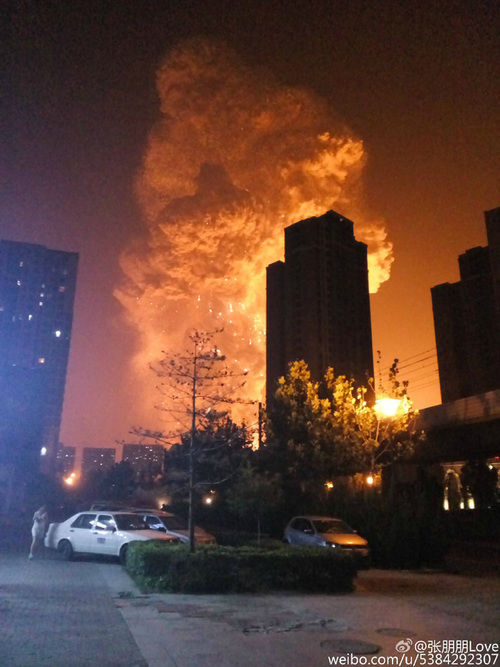
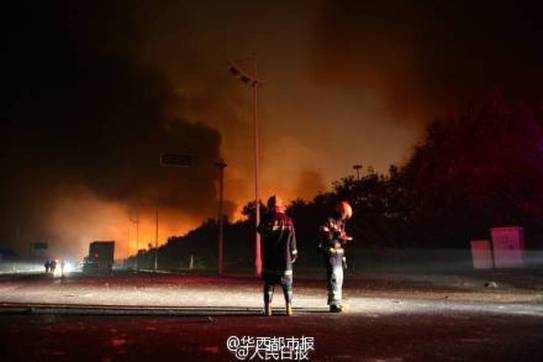
![]()
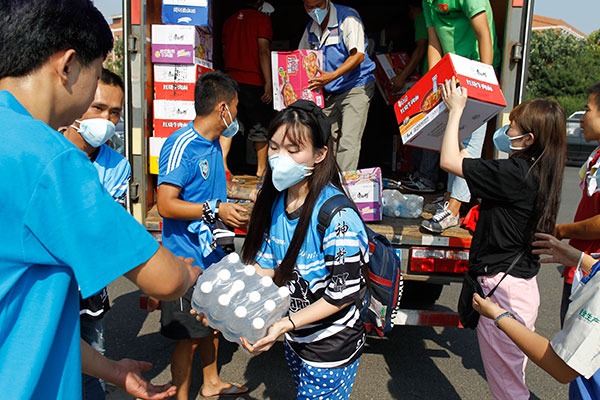
![Smoke and fire are seen after an explosion in the Binhai New Area in north China's Tianjin Municipality on Aug. 13, 2015. An explosion rocked the Binhai New Area in north China's Tianjin Municipality at around 11:30 p.m. Wednesday. The cause and casualties are not immediately known. [Photo/Xinhua] Smoke and fire are seen after an explosion in the Binhai New Area in north China's Tianjin Municipality on Aug. 13, 2015. An explosion rocked the Binhai New Area in north China's Tianjin Municipality at around 11:30 p.m. Wednesday. The cause and casualties are not immediately known. [Photo/Xinhua]](http://images.china.cn/attachement/jpg/site1007/20150813/001aa0ba3c1617361f0b01.jpg)
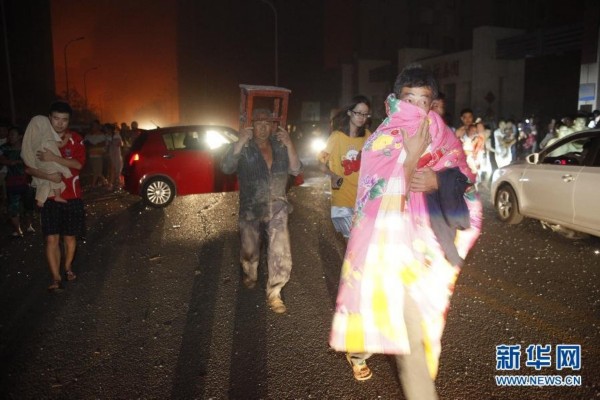
![Chinese President Xi Jinping, also general secretary of the Communist Party of China (CPC) Central Committee and chairman of the Central Military Commission, addresses the second central work conference on the development and stability of northwest China's Xinjiang Uygur Autonomous Region, in Beijing, May 28, 2014. [Photo/Xinhua] Chinese President Xi Jinping, also general secretary of the Communist Party of China (CPC) Central Committee and chairman of the Central Military Commission, addresses the second central work conference on the development and stability of northwest China's Xinjiang Uygur Autonomous Region, in Beijing, May 28, 2014. [Photo/Xinhua]](http://images.china.cn/attachement/jpg/site1007/20140530/7427ea210acc14f2190c01.jpg)
